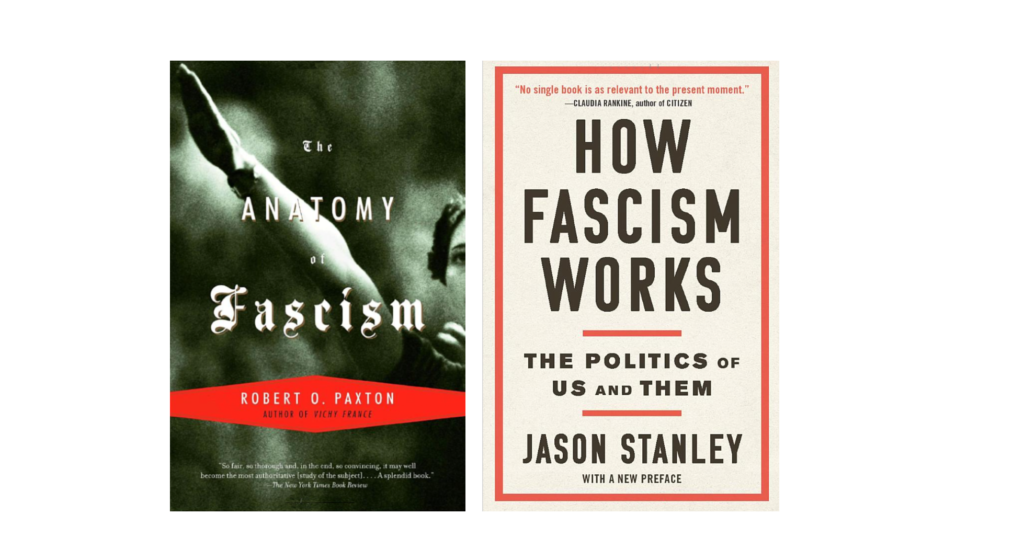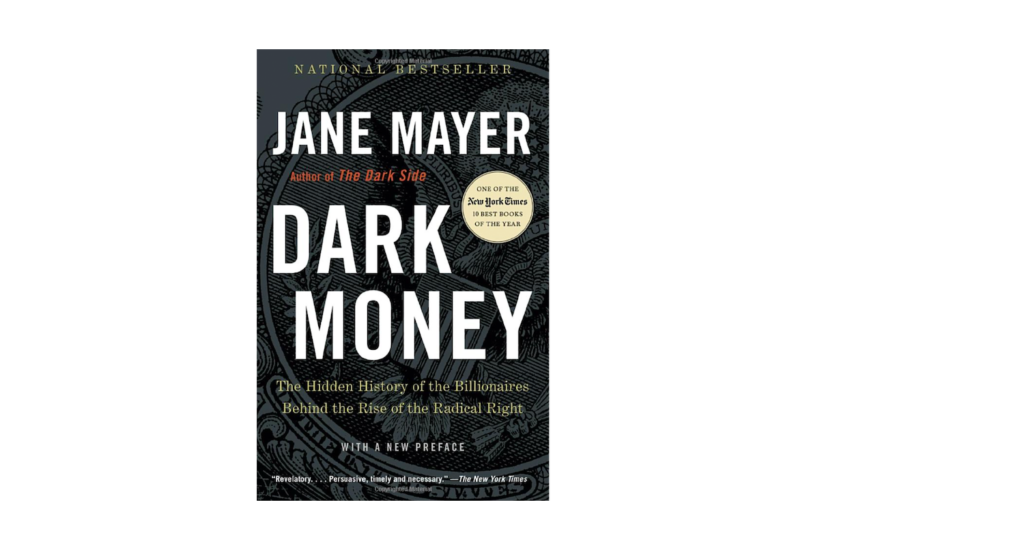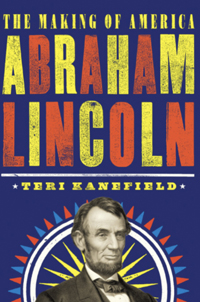This blog post started as YouTube video, here.
Last week I wrote about the link between white supremacy, hierarchies and the anti-mask and anti-vaccine “debate.”
I received some interesting comments and questions, which will serve as a good jumping-off point to expand on those ideas, and dig deeper into these connections.
So, first, to very briefly recap: a helpful paradigm for understanding the divide is that some people believe nature naturally forms a hierarchy, and others don’t. People who think nature forms a hierarchy, don’t believe that equality is possible. When people they think are lower on the hierarchy demand equality, they believe those people want to replace them. Hierarchy people think the purpose of government is to maintain the hierarchy, so when in power, they use their power to grab more.
I derived these ideas from scholars of fascism, particularly:
So if you missed last week’s blog post, you might want to see that one first, but if you don’t, this one should still make sense. (And besides, there won’t be a test, so no worries about that 🙂
Is there a factor of Dark Money propelling these GOP views?
Yes of course. Dark Money is the title of a book by Jane Mayer about right-wing, extremely wealthy donors who secretly fund far-right wing politicians.
So, who are these billionaire donors, and what’s their endgame?
Before I talk about the billionaire donors, some historical context is necessary.
Our current struggle between democracy (or equality and fairness) and oligarchy reaches all the way back to the founding of the nation. Heather Cox Richardson offers this insight: Democracy is always in danger of slipping toward oligarchy because people who acquire power and wealth often (but not always) use their power to further their own economic interests.
One way to understand today’s billionaires and their dark money is to look at their historical counterparts.
Heather Cox Richardson lays all of this out in her books:
(Regular readers will find this section repetitive, so you can skip to: The Libertarian Game Plan)
Our first oligarchy was slavery when wealthy plantation owners—who were 1% of the population—controlled all three branches of government. That 1% used their power to veto infrastructure like interstate roads and canals because they knew such infrastructure would benefit the industrialized North. To keep themselves strong, and to keep the plantation system dominant, they had to keep the industrialized North weakened.
In 1855 the Republican Party was born as an anti-slavery, pro-industry, pro-federal government party. The Republicans at that time wanted a strong federal government because industry needed roads and canals to thrive and to grow. For that they needed federal legislation.
After the Civil War and the crushing defeat of the South, the Republicans then had the power to pass pro-industry legislation.
As a result, the industrial revolution boomed. Then the nation’s wealthiest people were the railroad and business executives. Business tycoons used their wealth to consolidate their own power. Now they fought against things like minimum wage for workers and safe working conditions. They had been pro-labor back when they were opposed to slavery. But now they turned into an anti-labor party because, in order to keep themselves strong, they needed to weaken labor.
So the second oligarchy happened because these industrialists and business tycoons had enough power to control what the government did. This includes the Supreme Court because the Court was appointed by the presidents that those tycoons helped elect.
To give you an idea of what things were like then: The Supreme Court held that the minimum wage violated the constitutional freedom to enter contracts (Adkins v. Children’s Hospital, 1923). The idea was that if a person was willing to work for a few pennies per day, the government had no business interfering.
As I mentioned last week, it was federal legislation (the New Deal) that got us out of our second oligarchy. Among the things that the federal legislation did was limit the ability of industry tycoons and business owners to get rich by cheating. By cheating, I mean that in the 1920s it was legal to do things like manipulate markets, and fix prices, and exploit workers.
By the 1950s, because of the New Deal, America had its first strong middle class.
In the 1970s, we had no billionaires.
Then after the 1980s when Reagan deregulated industry, income inequality opened up again as large sums of money — this time billions of dollars—came to be concentrated in the hands of a few people.
The Libertarian Game Plan
Some of these billionaires (we can call them would-be oligarchs) are currently buying politicians because, like the slaveowners and robber barons of the past, they want to control the government. They’re using their wealth to control the government so they can further consolidate their own power.
In her book, Dark Money, Jane Mayer shows how billionaires like the Koch brothers financed think tanks, academic programs, and media outlets that have given them enormous control over the government.
You might ask: why do would-be oligarchs care if governments mandate masks?
The Koch brothers are anti-government libertarians. In 1980, when David Koch was the Libertarian Party VP candidate, he advocated abolishing the FBI, the CIA, and the IRS.
The simple answer is that they want the federal government to fail because they don’t like what the federal government has become since the New Deal and since the Civil Rights movement. The federal government has grown to include regulatory agencies intended to create fairness by giving equal rights to all citizens and by keeping businesses from cheating.
Things like free public education and publicly owned utilities and services help even the playing field, but they don’t like these things.
They want the Post Office to fail so they can privatize the mail. They want public schools to fail so they can privatize schools. They’d love to own the roads and make you pay a fee to drive on them. Heck, if they could own the air, they would. Their goal is to dismantle the New Deal, weaken regulatory agencies, and roll back the regulations that limit corporate power. When people like Steve Bannon talk about destroying the “deep state,” they mean these regulatory agencies and regulations. In Michigan in 2018, when Trump said, “Our laws are so corrupt and so stupid,” he was expressing the anti-government libertarian frustration with regulations that get in the way of what he wants to do.
Because, in the past, we got out of a worse situation through federal legislation, we know that works. What I mean by worse was that in the 1920s racial segregation was legal, states were allowed to keep Blacks from voting, and businesses could basically do whatever they wanted.
Now, don’t get me wrong. Roosevelt had a difficult time enacting his agenda. He had large majorities in Congress, but the pushback from the Supreme Court was intense. For a while it looked like the Supreme Court would unravel the entire New Deal.
So I’m not saying it’s easy but federal legislation in the past has gotten us out of a situation where big money and corporations basically controlled the government.
History teaches us possibilities for solving the big money / dark money problem.
Why do people lower on the hierarchy embrace the hierarchy?
All hierarchies are based on lies. Of course, as soon as I say that, I give myself away as a fairness person. I believe equality is possible because I believe that hierarchies are based on lies.
Racial hierarchies are based on the lie that some races are superior to others. American society in the 19th century was a strict hierarchy (called a “patriarchy”) with White men at the top and Black women at the bottom. This was supported at the time by theories that Blacks were naturally inferior and fit only for servitude. It was also supported by theories that there were separate “spheres” for men and women. Men were said to inhabit the public sphere and women the private one. In other words, women belonged in the home and men belonged in charge of the government.
Before the Civil War, poor Whites were actually harmed by the institution of slavery. They had to compete with free labor. Moreover, the wealthy plantation owners had a lock on power.
Here’s a passage from my own book on Lincoln:
To the surprise of many, the voters of Kentucky—even those who did not own slaves—overwhelmingly voted against the plan. Lincoln felt discouraged by the flat refusal of so many white Southerners, even those who were not slave owners, to end slavery. A young Kentuckian explained to Lincoln that slave ownership was the highest possible status symbol—and nobody wanted to give it up. “You might have any amount of land; money in your pocket or bank stock and while traveling around, no body would be any wiser, but if you had a darkey trudging at your heels every body would see him and know you owned slaves.” Lincoln understood such a prospect was “highly seductive to thoughtless and giddy headed young men.”
The economic hierarchy (like racial hierarchy) is based on lies. One of the lies is that if you work hard, you’ll succeed, and any “distribution” is unfair to you.
Any argument against “distributing wealth” is usually a racist argument in disguise because in American history and culture, the idea of redistributing wealth is usually a dog whistle for “my money shouldn’t go to support people who are undeserving” where the implication is that the undeserving are not White.
But set that aside: Among other things, taxes go to build highways, and provide services like public education, libraries, and public parks.
“I work two jobs so I should be able to keep my money,” makes no sense unless you’re willing to pay even more to drive on privatized roads and pay for library cards from privatized libraries.
The myth that underlies the economic hierarchy is this: People get rich because they’re competent so they deserve more money.
If an industrialist in 1920 got rich because he paid his workers poverty wages, does he deserve his money? What about a conman who gets rich running cons?
If you think all rich people got that way because they’re super competent and added value, let me tell you about how the Trumps got rich. They got rich by taking advantage of situations.
To take a recent example, during the six months after Trump lost the election, he reeled in $102 million. How? By fundraising off of his lies. Donors thought they were helping to stop the alleged “steal” but in fact, Trump spent nothing on the audit efforts.
Ironically, the idea that the rich are rich because they’re competent is only true if there are enough regulations in place to keep people from getting rich cheating or taking advantage.
That brings us to one of the many contradictions in libertarianism. Libertarians want to remove all regulations from industry. But if you remove the regulations, people can get rich by cheating, which undermines the argument that the rich got that way because they deserve it. If you have no regulations, people can get rich (to take a random example) by laundering dirty Russian money.
In such a case, the rich are not highly competent. They are the ones without scruples. Franklin Delano Roosevelt understood that the way to save capitalism from its worst excesses and faults was through regulations.
What hierarchy people are really good at is persuading ordinary people (like poor Whites at the time of slavery) that they benefit from a system that oppresses them.
It’s helpful to separate the economic hierarchy from the racial hierarchy because they’re based on somewhat different lies.
I’m sure different people have different reasons for accepting a hierarchy that hurts them. Some, I’m sure, believe that nature forms a hierarchy. They don’t believe people are really equal so they believe that democracy is based on a myth—the myth of equality. Some believe the lies. Others are just open White supremacists who want a racial hierarchy and they’re willing to accept economic policies that hurt them in exchange for that.
Regulations saved us
Federal regulations (like the Civil Rights Act) helped eliminate the racial hierarchy and put us on the road to a fully functioning, multi-racial democracy. Social services like public education also helps eliminate the racial hierarchy, and these things, of course, require taxes and a functioning government. White supremacists hate this part of the government. They think it’s unfair to them because they think these regulations allow people lower on the hierarchy to replace them.
Federal regulations also ended the era of the robber barons.
That’s why the hierarchy people hate regulations.
The anti-mask (“personal freedom”) argument echoes this libertarian idea that any government interference and upsets the natural order of things. What we can see is that Republicans have taught their supporters to reject any regulations that create fairness and help others.
The Solution
What we learned from getting out of our second oligarchy, the age of robber barons, is that federal legislation can solve the dark money problem and move us toward a fully functioning multi-racial democracy, so we need to elect people to office who will pass the legislation we need.
People on social media come up with lots of doomsday scenarios for how democracy might be destroyed. I have one concern: A majority of people vote for the anti-democratic party. When the Taliban first came to Afghanistan, they had widespread support. According to the BBC, Afghans generally welcomed the Taliban when they first appeared on the scene. Their early popularity was largely due to their success in stamping out corruption, curbing lawlessness and making the roads and the areas under their control safe for commerce to flourish.
In other words, they did what far right-wing regimes often promise to do: They stamped out corruption and lawlessness. They established order.
They also did the other thing far-right-wing regimes do: they established a hierarchy. Of course as we all know, their hierarchy is a strict one with women as second class citizens. And people who defy the law are dealt with extremely harshly.
The fact that they were initially welcomed demonstrates that right-wing regimes hold a lot of appeal for people. That’s why what worries me is that the Republican Party will win the support of a majority of Americans.
At the moment, it’s hard to see that happening, but things can change. And given what we know about the Republican Party, our elections are much closer than they should be.
Ultimately, it comes down to us. But I don’t recommend arguing with people who are hardcore Trump supporters. They see the world differently and are unlikely to change.
Are there psychometrics to measure fairness vs. hierarchy social bias?
We need to mobilize the people who do believe in fairness and equality. The good news is there are a lot more of us.
So the solution is simple: The way to strengthen democracy is with more democracy, or what Barack Obama calls “citizenship.” See this page.
I practice what I preach. Over the past few years I’ve put in hundreds of volunteer hours. I spent a few weeks at a detention center in Texas offering legal advice to asylum seekers through RAICES.
I’ve also done voter protection work through the Democratic party. What I’ve learned working several elections in three different states is that good poll workers make a huge difference in how smoothly elections are run. In fact, many of the legal problems that arise could be prevented by having good poll workers. So in the upcoming recall election in California, I’ll be working at a polling place.
I often say that democracy will survive if enough people want it to and are willing to do the work.
When I say this, people call me an optimist.
I think they hear my statement as optimistic because they miss the significance of the word “if.”
Democracy will survive if enough people want it to and are willing to do the work.



